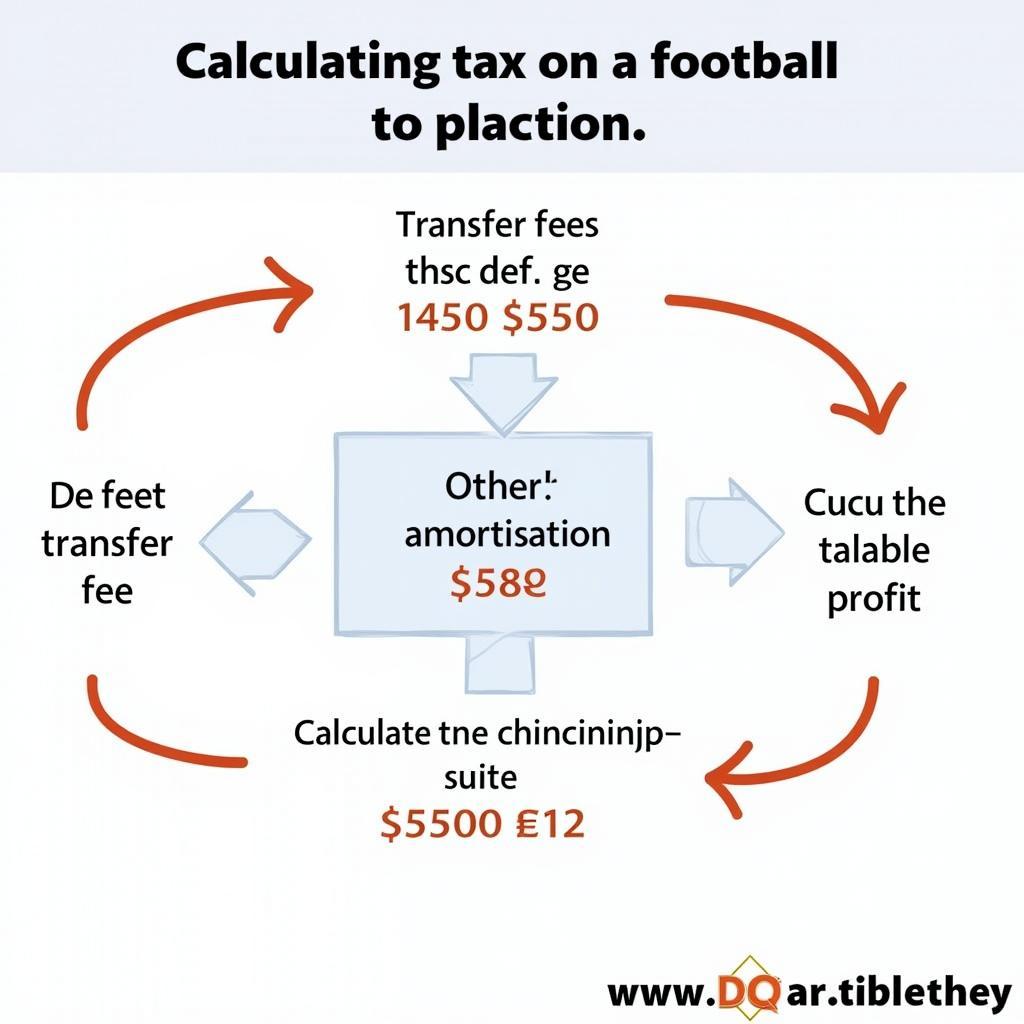How to Calculate Tax When Selling a Football Player
January 12, 2025Understanding how to calculate tax when selling a football player is crucial for both clubs and players. This intricate process involves various factors, including transfer fees, agent fees, sell-on clauses, and applicable tax laws, which can vary significantly depending on the countries involved. This guide aims to provide a comprehensive overview of the key considerations and calculations involved.
Key Factors Influencing Tax on Player Sales
Several factors contribute to the final tax calculation when a football player is transferred. Understanding these elements is essential for accurate assessment.
- Transfer Fee: The primary component is the transfer fee agreed upon between the buying and selling clubs. This amount forms the basis for several tax calculations.
- Agent Fees: Agent fees, often a substantial percentage of the transfer fee, are deductible expenses for the selling club and can impact the overall tax liability.
- Sell-On Clauses: If a sell-on clause exists from a previous transfer, a portion of the current transfer fee may be owed to another club. This outgoing payment can also affect the net taxable amount.
- Applicable Tax Laws: Tax laws differ considerably between countries. The residency status of the player and the clubs involved plays a significant role in determining the specific tax rates and regulations that apply.
- Amortisation: The amortisation of the player’s initial transfer fee (spread over the length of their contract) is also a key factor affecting the taxable profit.
Navigating the Tax Maze: A Step-by-Step Guide
Calculating the tax liability on a player sale can seem daunting. Here’s a simplified breakdown of the steps involved:
- Determine the Gross Profit: Calculate the difference between the received transfer fee and the remaining amortised value of the player’s original transfer fee.
- Deduct Allowable Expenses: Subtract any allowable expenses, such as agent fees and legal costs associated with the transfer.
- Apply Relevant Tax Rates: Apply the appropriate tax rates based on the jurisdictions involved. This step requires careful consideration of international tax treaties and local regulations.
- Calculate the Final Tax Liability: The resulting figure represents the final tax liability for the selling club.
 Football Transfer Tax Calculation
Football Transfer Tax Calculation
How Does Player Residency Affect Tax?
A player’s residency status can significantly impact the tax calculation. Different countries have varying tax rates and regulations regarding income earned from football transfers. If a player is transferring between countries with a tax treaty, specific provisions may apply to avoid double taxation.
What are the Common Tax Implications of Sell-On Clauses?
Sell-on clauses can create complex tax scenarios. The portion of the transfer fee paid to the club holding the sell-on clause is generally considered income and is subject to taxation in their respective jurisdiction. This aspect requires careful planning and consideration during the initial transfer agreement.
Expert Insights
“Navigating the complexities of football transfer taxation requires expert advice,” says John Smith, Senior Tax Consultant at Football Finance International. “Clubs need to be proactive in understanding the specific regulations in each jurisdiction to avoid unforeseen tax liabilities.” Maria Garcia, a leading sports lawyer, adds, “Sell-on clauses, while potentially lucrative, can create complicated tax situations. It’s crucial to structure these clauses carefully from the outset.” Finally, David Wilson, a seasoned football agent, notes: “Agent fees are a legitimate business expense and should be factored into the tax calculations. Transparency and clear agreements are vital.”
Conclusion
Calculating tax when selling a football player involves a complex interplay of factors. Understanding the key elements, including transfer fees, agent fees, sell-on clauses, and applicable tax laws, is essential for accurate assessment. Seeking professional advice from tax experts and legal counsel is highly recommended to ensure compliance and optimize financial outcomes.
FAQ
- What are the typical tax rates for player sales? This varies significantly between countries and specific circumstances.
- Are there any tax benefits for youth players? Specific regulations may apply depending on the player’s age and the country.
- How do international transfers affect tax calculations? International tax treaties and double taxation agreements come into play.
- What are the penalties for incorrect tax reporting? Penalties can be severe, including fines and legal action.
- Can I deduct legal fees associated with the transfer? Generally, yes, legal fees related to the transfer are deductible.
- What are the tax implications for the player themselves? The player will be subject to income tax on their earnings in their country of residence.
- How does amortisation impact the tax calculation? Amortisation reduces the taxable profit on the sale.
Need further assistance? Contact us! Phone: 0396443476, Email: [email protected], or visit us at 23 Tháng 3, Đắk Nia, Gia Nghĩa, Đắk Nông, Việt Nam. Our 24/7 customer support team is ready to help.